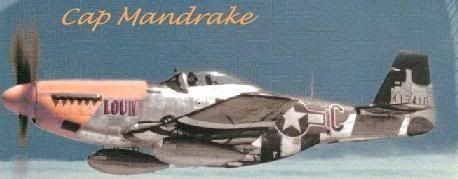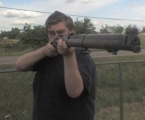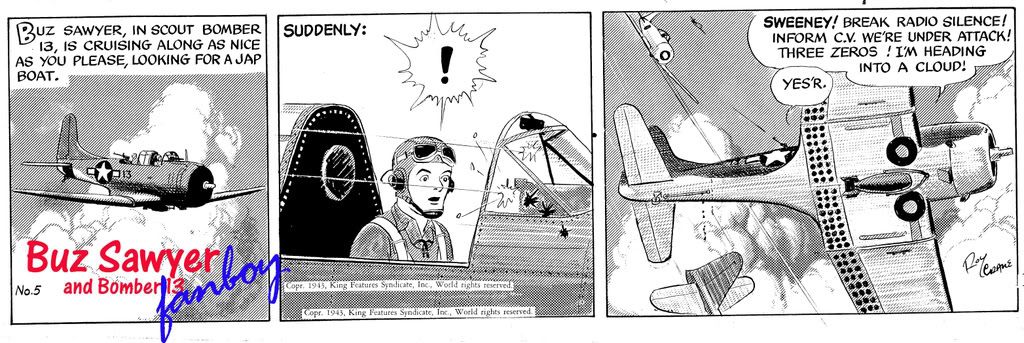Hypothetical US Carrier names
Hypothetical US Carrier names
Edting scen17, added the Owari and would like to counterbalance with a US carrier. Just for fun against the AI. What's a good name for the US carrier. Sorry guys didn't mean to post this to the war room.
Thanks, Greg Kilroy
Thanks, Greg Kilroy
-
SoulBlazer
- Posts: 766
- Joined: Sun Oct 27, 2002 5:28 am
- Location: Providence RI
Don't forget these:
Antietam
Shangri La
Tarawa
Valley Forge
Midway
Coral Sea
Franklin Roosevelt
Saipan
Wright
All late war Essex, Midway, or Saipan class carriers
Antietam
Shangri La
Tarawa
Valley Forge
Midway
Coral Sea
Franklin Roosevelt
Saipan
Wright
All late war Essex, Midway, or Saipan class carriers
Designer of War Plan Orange
Allied Naval OOBer of Admiral's Edition
Naval Team Lead for War in the Med
Author of Million-Dollar Barrage: American Field Artillery in the Great War coming soon from OU Press.
Allied Naval OOBer of Admiral's Edition
Naval Team Lead for War in the Med
Author of Million-Dollar Barrage: American Field Artillery in the Great War coming soon from OU Press.
Re: Hypothetical US Carrier names
Originally posted by Kilroy
Edting scen17, added the Owari and would like to counterbalance with a US carrier.
"End" ? You named a Japanese CV "End"? As in "The End", "That's all she wrote", "The fat lady is singing"? Why did you choose that as a name? I would hate to serve on a CV with such a fatalistic sounding name.
How about Shirogi? (White Castle, like Akagi means red castle)
Yamamoto
??????????
Where did "Cowpens" come from? What an awful name for a ship!:eek:

Never argue with an idiot, he will only drag you down to his level and beat you with experience.
-
SoulBlazer
- Posts: 766
- Joined: Sun Oct 27, 2002 5:28 am
- Location: Providence RI
I'm not surprised you have'nt heard of the Battle of Cowpens -- I doubt most Americans would reconize the name either. But it was one of the most important American victories in the Revolution.
Cowpens was fought January 17 1781 in (what I'm almost sure) is now South Carolina. The name came because most of the battle was fought on....well, cowpens, grazing and storing areas.
British Tory Banastre Tarleton was commanding one of the wings of Lord Cornwallis as the British army swept through South Carolina. The year previous, the Contentials had suffered a major defeat at the Battle of Camden (basicaly ceading control of the south to the British) and now the Americans were finally re-organizing under the overall command of Generals Daniel Morgan and Nathanal Greene (some of the best generals in the rebel armies, but never really reconized).
Due to worries about the American armies, Cornwallis had spilit his forces in order to use his manpower and training edge to counter a similar move by Greene (the Brits had about four thousand total soliders compared to three thousand under Greene). Tarelton and Morgan clashed at ground that Morgan had chosen, that looked like a trap, at Cowpens.
The American battle plan was simple. In previous battles all through the Revolution, Milita had preformed very badly. They were'nt used to regular combat or the shock weight of a British charge, and even though they were the meat of the Contentional armies, their value was dubious at best. And Morgan was outnumbered here by about three to one. He decided to give orders to his milita to fire two vollies, and then fall back and regroup while the regular Contentianls came forward to fight.
The plan worked better then he dreamed. The milita fired their vollies at the charging British, who, when they saw the Americans turning tail yet again, throught for sure the battle was won and charged -- only to run into devasting fire from the regular soliders as the milita caverly charged in one flank and the milita reformed on the other. The British were totally routed and Tarelton hardly escaped with his life.
Exact losses are unknown, but best estimates say the British lost about 2800 in killed or wounded compared to only 12 Americans killed and 60 wounded.
Between this battle and another victory nearby at a battle called Kings Mountain (fought October 7 1780) the tide had turned in the south. Greene followed up with a draw at Guilfords Court House and another clear victory at Ninty-Six. Faced with this battles and Greene's smart moves to retake the south, Cornwallis fled the Carolinas in the summer of 1781 and headed for the coast of Virginia to resupply and get more men. Hence, enter Yorktown and the end of the war.
Cowpens has been refered to as 'The American Cannae'. One of my favorite historians, Robert Leckie, follows by saying "This battle was the gem of the Revolution -- brought off by a American backwoodsman, who, like the great Hannibal himself, was mearly adapting to men and terrain. This battle, combined with Kings Mountain, also set the stage for Greene's retaking of the south".
Sorry for the long history. But I do love to study the Revolution and I carry a MA in American History.
But I do love to study the Revolution and I carry a MA in American History.
BTW -- for anyone who has seen the movie The Patroit with Mel Gibson -- Cowpens is the battle in the last half hour of the movie, where Mel's character takes his revenge. The movie is pretty accurate with the details of the battle but not the terrain. (and eariler in the movie you see a little of Camden as well).
Cowpens was fought January 17 1781 in (what I'm almost sure) is now South Carolina. The name came because most of the battle was fought on....well, cowpens, grazing and storing areas.
British Tory Banastre Tarleton was commanding one of the wings of Lord Cornwallis as the British army swept through South Carolina. The year previous, the Contentials had suffered a major defeat at the Battle of Camden (basicaly ceading control of the south to the British) and now the Americans were finally re-organizing under the overall command of Generals Daniel Morgan and Nathanal Greene (some of the best generals in the rebel armies, but never really reconized).
Due to worries about the American armies, Cornwallis had spilit his forces in order to use his manpower and training edge to counter a similar move by Greene (the Brits had about four thousand total soliders compared to three thousand under Greene). Tarelton and Morgan clashed at ground that Morgan had chosen, that looked like a trap, at Cowpens.
The American battle plan was simple. In previous battles all through the Revolution, Milita had preformed very badly. They were'nt used to regular combat or the shock weight of a British charge, and even though they were the meat of the Contentional armies, their value was dubious at best. And Morgan was outnumbered here by about three to one. He decided to give orders to his milita to fire two vollies, and then fall back and regroup while the regular Contentianls came forward to fight.
The plan worked better then he dreamed. The milita fired their vollies at the charging British, who, when they saw the Americans turning tail yet again, throught for sure the battle was won and charged -- only to run into devasting fire from the regular soliders as the milita caverly charged in one flank and the milita reformed on the other. The British were totally routed and Tarelton hardly escaped with his life.
Exact losses are unknown, but best estimates say the British lost about 2800 in killed or wounded compared to only 12 Americans killed and 60 wounded.
Between this battle and another victory nearby at a battle called Kings Mountain (fought October 7 1780) the tide had turned in the south. Greene followed up with a draw at Guilfords Court House and another clear victory at Ninty-Six. Faced with this battles and Greene's smart moves to retake the south, Cornwallis fled the Carolinas in the summer of 1781 and headed for the coast of Virginia to resupply and get more men. Hence, enter Yorktown and the end of the war.
Cowpens has been refered to as 'The American Cannae'. One of my favorite historians, Robert Leckie, follows by saying "This battle was the gem of the Revolution -- brought off by a American backwoodsman, who, like the great Hannibal himself, was mearly adapting to men and terrain. This battle, combined with Kings Mountain, also set the stage for Greene's retaking of the south".
Sorry for the long history.
BTW -- for anyone who has seen the movie The Patroit with Mel Gibson -- Cowpens is the battle in the last half hour of the movie, where Mel's character takes his revenge. The movie is pretty accurate with the details of the battle but not the terrain. (and eariler in the movie you see a little of Camden as well).
The US Navy could probaly win a war without coffee, but would prefer not to try -- Samuel Morison
-
Admiral_Arctic
- Posts: 154
- Joined: Thu Aug 15, 2002 3:22 pm
- Location: Nonamia
Where are your bottles of champaigne?
USN ADMIRAL ARCTIC
USN ADMIRAL ARCTIC II
USN ADMIRAL ARCTIC III
USN ADMIRAL ARCTIC IV
USN ADMIRAL ARCTIC II
USN ADMIRAL ARCTIC III
USN ADMIRAL ARCTIC IV
I'm a hazard to myself.
Want. Take. Have.
Want. Take. Have.
- Cap Mandrake
- Posts: 20737
- Joined: Fri Nov 15, 2002 8:37 am
- Location: Southern California
Originally posted by TheElf
How bout "United States" The keel was laid near the end of the war but the new name was never used. Can't remember if they scrapped the ship in favor of a newer design or just renamed the ship. Normally I'd research this before posting, but I'm just not in the mood...
The goofiest nickname for an American carrier is the "Queerbarge" (USS Keersarge). From what I hear, even the crew called it that (but not in front of the Captain)

I haven't seen many US ships named after Civil War battles? Is that to avoid upsetting Southerners/Northerners who lost the battles? I never saw a Vicksburg, Gettysburg, Antietem...maybe they existed but just had obscure roles.
"Money doesnt talk, it swears. Obscenities, who really cares?" -Bob Dylan
"Habit is the balast that chains a dog to it's vomit." -Samuel Becket
"He has weapons of mass destruction- the world's deadliest weapons- which pose a direct threat to the
"Habit is the balast that chains a dog to it's vomit." -Samuel Becket
"He has weapons of mass destruction- the world's deadliest weapons- which pose a direct threat to the
Originally posted by Snigbert
I haven't seen many US ships named after Civil War battles? Is that to avoid upsetting Southerners/Northerners who lost the battles? I never saw a Vicksburg, Gettysburg, Antietem...maybe they existed but just had obscure roles.
Or Manassas, Fredericksburg, or Chancellorsville....
"Life is tough, it's even tougher when you're stupid" -SGT John M. Stryker, USMC
CV-13 Franklin was named after the Civil War battle outside Nashville, not Benjamin Franklin.
However, CV-31 "BonHomme Richard" was named after the ship commanded by John Paul Jones that defeated Serapis during the American revolution. In turn, Jones had named the ship in honor of Benjamin Franklin by referring to "Poor Richard's Almanac"- "Bonhomme Richard" is French for "Good Man Richard."
However, CV-31 "BonHomme Richard" was named after the ship commanded by John Paul Jones that defeated Serapis during the American revolution. In turn, Jones had named the ship in honor of Benjamin Franklin by referring to "Poor Richard's Almanac"- "Bonhomme Richard" is French for "Good Man Richard."
CV-13 Franklin was named after the Civil War battle outside Nashville, not Benjamin Franklin.
However, CV-31 "BonHomme Richard" was named after the ship commanded by John Paul Jones that defeated Serapis during the American revolution. In turn, Jones had named the ship in honor of Benjamin Franklin be referring to "Poor Richard's Almanac"-"Bonhomme Richard" is French for "Good Man Richard."
However, CV-31 "BonHomme Richard" was named after the ship commanded by John Paul Jones that defeated Serapis during the American revolution. In turn, Jones had named the ship in honor of Benjamin Franklin be referring to "Poor Richard's Almanac"-"Bonhomme Richard" is French for "Good Man Richard."
- Admiral DadMan
- Posts: 3402
- Joined: Fri Feb 22, 2002 10:00 am
- Location: A Lion uses all its might to catch a Rabbit
Bull Run, Appomatox Courthouse...Originally posted by denisonh
Or Manassas, Fredericksburg, or Chancellorsville....
Wrong, baby puppy.Originally posted by donaldo
CV-13 Franklin was named after the Civil War battle outside Nashville, not Benjamin Franklin.
Franklin (CV-13)
"From: Dictionary Of American Naval Fighting Ships, Vol. II, 1977, pp. 443-44.
Benjamin Franklin (1706-90) was born in Boston but moved at an early age to Philadelphia where his countless talents and unlimited energies found expression in successful contributions as statesman, diplomat, scientist, editor-author, and philosopher. Dur ing the Revolution he was appointed American Minister Plenipotentiary to the French Court enabling him to function also as the Navy's representative in Europe. He promoted the plan to bring the war to British shores, supporting Lambert Wickes' spectacula r raids and enabling John Paul Jones to perform his daring feats by providing funds, attending to purchases and repairs, and determining questions of authority and discipline. His astute and visionary policies merit for him deserved recognition in the an nals of the infant Navy as well as esteem as a founder of the United States. (The first four ships of the name honor Benjamin Franklin; CV-13 perpetuates the names of these ships.)"
Or Manassas, Fredericksburg, or Chancellorsville....
I dont think there would be as much of a problem naming them after Union losses, since the North isn't sensitive about Civil War issues anymore. We also named other warships after US losses such as Wake Island, Coral Sea, Bunker Hill, etc. It seems that the War Department was just trying to be sensitive to the lingering feelings of the Southerners, or didn't want to celebrate events of the Civil War.
I dont think there would be as much of a problem naming them after Union losses, since the North isn't sensitive about Civil War issues anymore. We also named other warships after US losses such as Wake Island, Coral Sea, Bunker Hill, etc. It seems that the War Department was just trying to be sensitive to the lingering feelings of the Southerners, or didn't want to celebrate events of the Civil War.
"Money doesnt talk, it swears. Obscenities, who really cares?" -Bob Dylan
"Habit is the balast that chains a dog to it's vomit." -Samuel Becket
"He has weapons of mass destruction- the world's deadliest weapons- which pose a direct threat to the
"Habit is the balast that chains a dog to it's vomit." -Samuel Becket
"He has weapons of mass destruction- the world's deadliest weapons- which pose a direct threat to the














